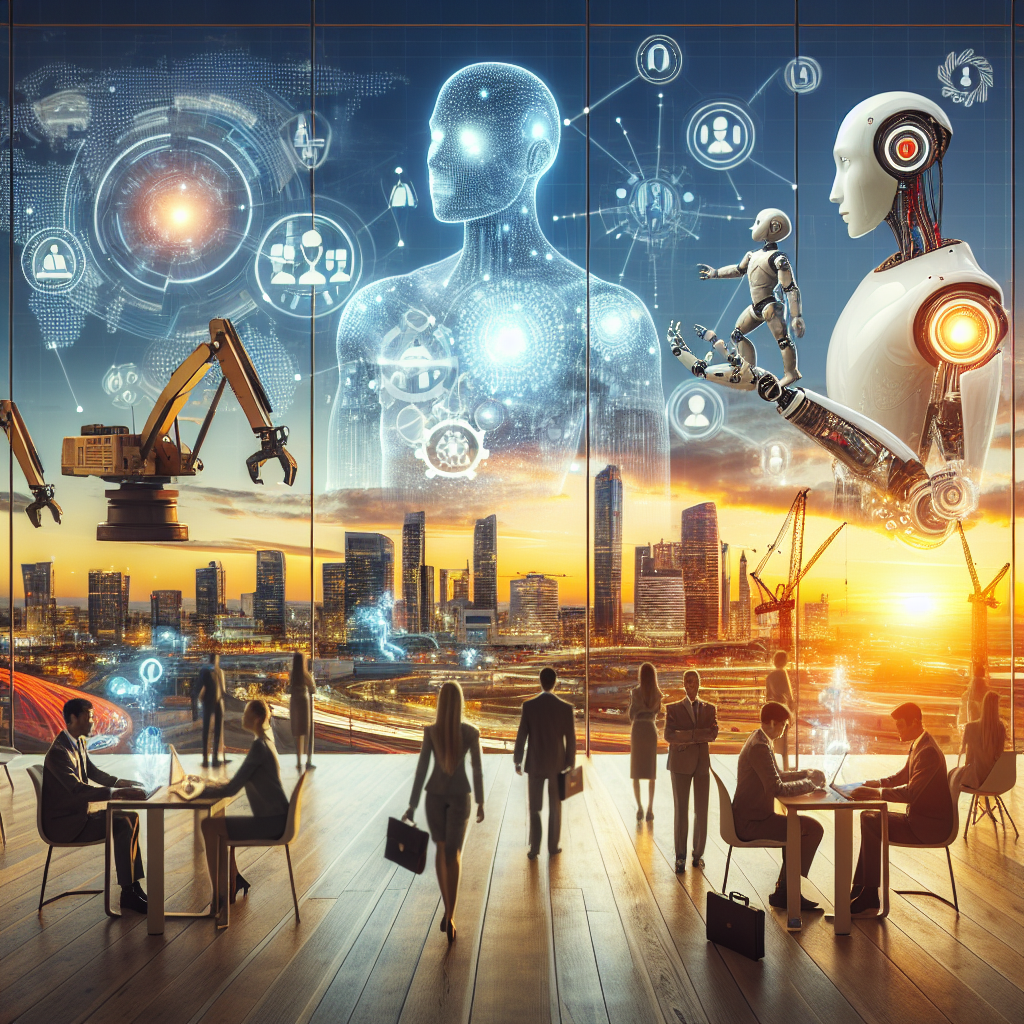The Future of Work: How AGI Will Transform the Workforce and Job Market
Artificial General Intelligence (AGI) is a term used to describe a type of artificial intelligence that is capable of understanding and learning any intellectual task that a human being can. While current AI technology is limited to specific tasks, such as playing games or recognizing patterns, AGI has the potential to revolutionize the way we work and live. In this article, we will explore how AGI will transform the workforce and job market in the near future.
1. The Rise of AGI in the Workplace
AGI has the potential to automate and optimize a wide range of tasks currently performed by humans. From data analysis and decision-making to customer service and creative work, AGI can be integrated into almost any industry and job function. This will lead to increased efficiency, lower costs, and improved quality in many sectors.
For example, AGI can be used to analyze large datasets and make predictions about market trends, customer behavior, or product performance. This can help companies make better decisions and stay ahead of the competition. In customer service, AGI-powered chatbots can provide instant assistance to customers, reducing the need for human agents and improving response times.
In creative industries, AGI can assist with content creation, design, and marketing. For example, AGI can generate personalized advertisements based on individual preferences and behavior, or help artists and designers come up with new ideas and concepts. This can lead to more engaging and effective marketing campaigns, as well as innovative and original works of art.
Overall, the rise of AGI in the workplace will lead to a shift in the way we work and the skills we need to succeed. Jobs that require routine tasks and manual labor will be automated, while roles that involve creativity, critical thinking, and interpersonal skills will become more important. This will require workers to adapt and develop new skills to stay relevant in an increasingly automated world.
2. The Impact on the Job Market
The integration of AGI into the workforce will have a profound impact on the job market. While some jobs will be eliminated or transformed by automation, new opportunities will also be created in emerging industries and roles. This will require workers to be flexible and adaptable, as well as willing to learn new skills and technologies.
One of the key challenges posed by AGI is the potential displacement of workers in certain industries. For example, jobs in manufacturing, transportation, and retail are at risk of being automated by AGI-powered robots and machines. This can lead to job losses and economic disruption in affected communities, as workers struggle to find new employment opportunities.
However, the rise of AGI also presents new opportunities for workers to transition to higher-skilled and higher-paying roles. For example, jobs in data science, artificial intelligence, and machine learning are in high demand and are expected to continue growing in the future. Workers with the necessary skills and expertise in these areas will be well-positioned to take advantage of new job opportunities in the AGI-powered economy.
Overall, the impact of AGI on the job market will be complex and multifaceted. While some jobs will be automated and others will be created, the overall trend is towards a more efficient and productive workforce. Workers will need to be proactive in adapting to these changes and investing in their skills and education to remain competitive in the future job market.
3. FAQs
Q: Will AGI replace all human workers?
A: While AGI has the potential to automate many tasks currently performed by humans, it is unlikely to completely replace all human workers. Jobs that require creativity, critical thinking, and interpersonal skills are less likely to be automated by AGI, as these tasks are inherently human-centric and difficult to replicate with artificial intelligence.
Q: How can workers prepare for the rise of AGI in the workplace?
A: Workers can prepare for the rise of AGI by developing skills that are difficult to automate, such as creativity, critical thinking, and emotional intelligence. This can involve investing in education and training programs that focus on these areas, as well as staying up-to-date on emerging technologies and trends in the job market.
Q: What industries are most likely to be impacted by AGI?
A: Industries that rely on routine tasks, manual labor, and repetitive processes are most likely to be impacted by AGI. This includes industries such as manufacturing, transportation, retail, and customer service. However, emerging industries such as data science, artificial intelligence, and machine learning are also expected to be transformed by AGI in the future.
Q: Will AGI lead to job losses?
A: While AGI has the potential to automate certain tasks and roles, it is also expected to create new job opportunities in emerging industries and roles. The overall impact of AGI on the job market will depend on how workers and companies adapt to these changes, as well as how government policies and regulations are implemented to support workers in transitioning to new roles and industries.
In conclusion, the rise of AGI in the workforce will have a profound impact on the way we work and live. While some jobs will be automated and others will be created, the overall trend is towards a more efficient and productive workforce. Workers will need to be proactive in adapting to these changes and investing in their skills and education to remain competitive in the future job market.

